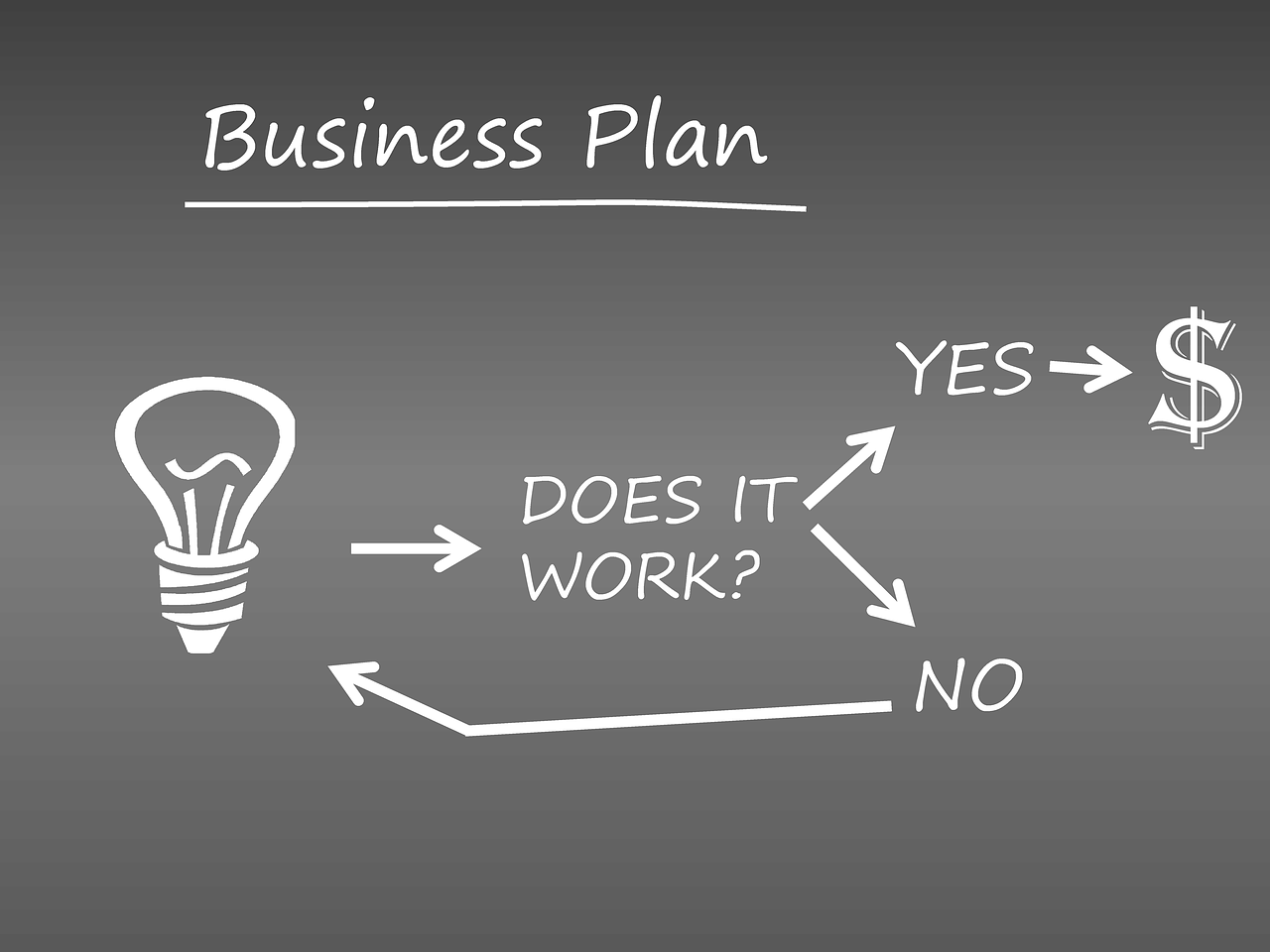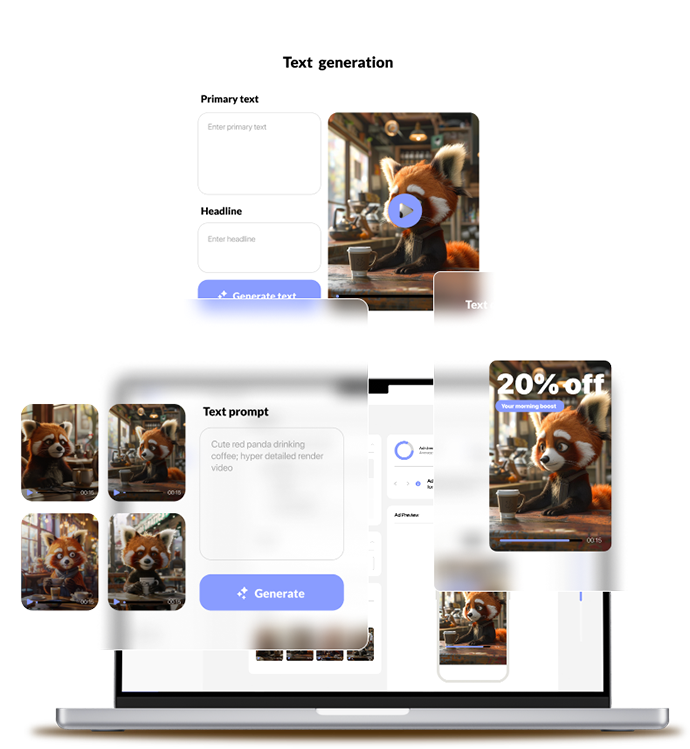
Introduction
Business Plan – In the rapidly evolving business landscape of 2025, crafting a robust business plan is more crucial than ever. This plan serves as a strategic roadmap, guiding enterprises through market complexities, technological advancements, and societal shifts. This article delves into the latest trends in business planning, emphasizes the relevance of these plans to contemporary society, and explores the profound impact of innovation on business success.
The Evolving Landscape of Business Planning in 2025

The Evolving Landscape of Business Planning in 2025
In 2025, business planning has become more dynamic than ever, driven by rapid technological advancements, shifting consumer behaviors, and an increasingly interconnected global economy. Entrepreneurs and corporations alike must adopt innovative approaches to remain competitive. This article explores the evolving trends in business planning, its relevance to modern society, and the role of innovation in shaping the future of entrepreneurship.
Understanding the Shift in Business Planning
Traditional business planning focused primarily on financial projections, market analysis, and operational strategies. However, the current landscape demands a more flexible and forward-thinking approach. Companies must now incorporate sustainability, digital transformation, and adaptability into their strategic blueprints.
Key Trends in Business Planning for 2025
Digital Transformation and AI Integration
Artificial intelligence (AI) and big data analytics are revolutionizing business decision-making. AI-driven insights help businesses predict market trends, automate operations, and enhance customer experiences.
Sustainability and Corporate Responsibility
Businesses are increasingly integrating environmental, social, and governance (ESG) criteria into their planning. Consumers and investors are prioritizing companies with sustainable and ethical practices.
Remote and Hybrid Work Models
The pandemic accelerated the adoption of remote work, and it remains a key factor in business planning. Organizations are redesigning work environments to maximize productivity while maintaining employee well-being.
Blockchain and Decentralization
Blockchain technology is transforming financial transactions, supply chains, and business contracts. Decentralized finance (DeFi) is gaining traction, offering alternative funding options for startups.
Personalized Customer Experiences
Data-driven marketing strategies enable businesses to tailor their offerings to individual customer preferences, enhancing engagement and loyalty.
The Role of Business Planning in Society
A well-structured business plan is essential for startups, small businesses, and large corporations alike. It provides direction, attracts investors, and ensures long-term sustainability. In today’s interconnected world, businesses are also expected to contribute positively to society, addressing social and environmental issues through their operations.
How Innovation is Reshaping Business Plans
Innovation is at the core of modern business planning. Companies that embrace emerging technologies gain a competitive advantage by streamlining operations, enhancing customer interactions, and expanding market reach.
Steps to Develop an Effective Business Plan in 2025
Define Your Vision and Goals
Establish clear, measurable objectives that align with industry trends and societal expectations.
Conduct Market Research
Analyze industry trends, customer preferences, and competitors to identify growth opportunities.
Leverage Technology
Utilize AI, blockchain, and digital tools to optimize operations and decision-making.
Emphasize Sustainability
Integrate eco-friendly practices and social responsibility into your business model.
Develop a Financial Strategy
Create realistic financial projections, identify funding sources, and manage risks effectively.
Build a Flexible Operational Plan
Design agile business processes that can quickly adapt to market changes and disruptions.
Implement Robust Marketing Strategies
Focus on digital marketing, social media engagement, and personalized customer experiences.
Business planning in 2025 is an ever-evolving process that requires adaptability, technological integration, and a strong focus on sustainability. Entrepreneurs who embrace these changes will be better positioned to succeed in an increasingly competitive and innovation-driven marketplace.
The Relevance of Business Plans in Modern Society

In today’s fast-paced and ever-evolving business landscape, the importance of a well-structured business plan cannot be overstated. A business plan is not just a document; it serves as a roadmap for entrepreneurs, investors, and organizations striving for success. As innovation and digital transformation continue to shape industries, the relevance of business plans in modern society remains stronger than ever. This article explores the critical role of business plans, their evolving nature, and how they align with contemporary business needs.
The Evolving Role of Business Plans
Traditionally, business plans were primarily used for securing investments and loans. However, in the modern era, they serve multiple purposes, including strategic growth, risk management, and adapting to rapidly changing markets. Today’s business plans are more dynamic, integrating real-time data, market analytics, and technology-driven insights.
Why Business Plans Matter More Than Ever
Providing Strategic Direction
A business plan acts as a strategic blueprint, guiding companies in achieving their goals efficiently. It outlines business objectives, target markets, financial projections, and operational strategies.
Attracting Investors and Stakeholders
Investors require a clear and convincing business plan before committing their resources. A well-structured plan demonstrates a company’s vision, market potential, and growth strategies, increasing its appeal to financial backers.
Adapting to Market Trends
In a fast-changing business environment, companies must be agile. Business plans that incorporate data-driven insights help organizations anticipate market shifts and adapt accordingly.
Enhancing Decision-Making
Data-driven decision-making is crucial for business success. A detailed plan allows businesses to make informed choices, minimizing risks and optimizing growth opportunities.
Incorporating Sustainability and Social Responsibility
Modern consumers prioritize businesses that align with ethical and environmental values. Business plans now include sustainability initiatives, social impact goals, and corporate responsibility strategies.
How Innovation is Transforming Business Planning
Artificial Intelligence and Big Data
AI-powered analytics provide real-time insights, helping businesses refine strategies and improve efficiency. Predictive modeling allows companies to forecast trends and optimize operations.
Digital Transformation
Cloud-based business planning tools enable seamless collaboration, remote access, and integration with financial management software.
Lean and Agile Business Planning
Traditional long-form business plans are being replaced by agile, flexible frameworks that allow companies to pivot quickly in response to market changes.
Blockchain for Transparency and Security
Blockchain technology enhances business transparency, particularly in financial transactions and supply chain management, fostering trust among stakeholders.
Personalized Customer Experiences
Businesses are leveraging data-driven strategies to enhance customer engagement, personalizing marketing and service offerings to boost brand loyalty.
Steps to Crafting a Modern Business Plan
Define a Clear Vision and Mission
Establishing core objectives and a unique value proposition sets the foundation for a strong business plan.
Conduct Comprehensive Market Research
Understanding industry trends, customer needs, and competitor strategies ensures a competitive edge.
Develop a Sustainable Business Model
Integrating sustainability practices and innovative revenue streams enhances long-term viability.
Create Financial Projections and Risk Assessments
Analyzing financial data, profit margins, and potential risks strengthens investor confidence.
Utilize Advanced Technology
Incorporating AI, automation, and digital tools optimizes business operations and efficiency.
Maintain Flexibility for Adaptation
A modern business plan should be adaptable, allowing for continuous improvements based on market feedback.
The relevance of business plans in modern society extends far beyond traditional financial documentation. They serve as strategic tools for innovation, adaptability, and long-term success. By incorporating cutting-edge technology, sustainability initiatives, and customer-centric approaches, today’s business plans empower entrepreneurs and corporations to thrive in an increasingly competitive world. As industries continue to evolve, the role of business planning will remain essential in shaping the future of entrepreneurship and economic growth.
The Impact of Innovation on Business Planning

Innovation has always been a driving force behind business growth, but in today’s rapidly evolving landscape, its influence on business planning is more significant than ever. As industries embrace technological advancements, shifting consumer behaviors, and global market dynamics, businesses must adapt their planning strategies to stay competitive. This article explores how innovation is reshaping business planning, its relevance in modern society, and the long-term implications of these transformations.
The Role of Innovation in Business Planning
Innovation is no longer a choice; it is a necessity for survival and growth. Traditional business plans, once static documents, have evolved into dynamic frameworks that must continuously adapt to new trends and disruptions. Companies that integrate innovation into their planning process gain a competitive edge by staying ahead of industry shifts, technological breakthroughs, and customer expectations.
Key Areas Where Innovation is Transforming Business Planning
Data-Driven Decision Making
Advances in big data and analytics provide businesses with real-time insights, allowing them to make informed decisions. Predictive analytics, AI-driven forecasting, and data visualization tools help organizations anticipate market trends and optimize strategies accordingly.
Agile and Lean Business Planning
Traditional long-term business plans are becoming obsolete in fast-changing markets. Agile business planning focuses on flexibility, continuous improvement, and iterative processes that enable businesses to pivot when necessary.
Digital Transformation and Automation
Digital tools and automation streamline business operations, reducing costs and increasing efficiency. Cloud computing, AI, and machine learning enhance productivity, allowing companies to scale faster while maintaining quality.
Innovation in Financial Planning
Emerging financial technologies (FinTech) and blockchain solutions enhance financial transparency, security, and investment management. Businesses can now access alternative funding options, such as crowdfunding, digital lending, and decentralized finance (DeFi).
Sustainability and Green Business Strategies
Environmental, social, and governance (ESG) factors are becoming central to business planning. Companies are incorporating sustainable practices, green technology, and ethical supply chain management to align with consumer expectations and regulatory standards.
Customer-Centric Business Models
With the rise of AI-driven personalization and behavioral analytics, businesses are shifting towards customer-centric models. Understanding consumer needs through data allows for more effective marketing strategies and product innovation.
The Relevance of Innovation in Today’s Business Environment
Enhancing Competitive Advantage
Companies that embrace innovation in their planning process are more likely to outperform competitors. They can quickly adapt to changes and seize new opportunities before others.
Mitigating Risks and Uncertainties
Disruptions such as economic downturns, pandemics, and technological shifts require businesses to have adaptable and resilient strategies. Innovation-driven planning enables organizations to prepare for uncertainties.
Driving Sustainable Growth
Businesses that invest in innovation sustain long-term growth by staying relevant, optimizing operations, and continuously improving their offerings.
Steps to Integrate Innovation into Business Planning
Adopt a Culture of Continuous Innovation
Encourage employees to contribute new ideas, invest in research and development, and stay open to emerging technologies.
Leverage Technology and Automation
Utilize AI, big data, and automation tools to optimize business processes and enhance decision-making.
Monitor Industry Trends and Consumer Insights
Stay informed about market changes, technological advancements, and customer preferences to ensure strategic alignment.
Develop Scalable and Flexible Business Models
Build adaptable frameworks that allow businesses to pivot when necessary and scale operations efficiently.
Prioritize Sustainability and Ethical Business Practices
Align business strategies with ESG principles to meet regulatory requirements and consumer expectations.
Innovation is revolutionizing the way businesses plan, operate, and grow. The integration of cutting-edge technology, data-driven decision-making, and sustainable practices ensures that companies remain competitive in an ever-changing marketplace. By embracing innovation in business planning, organizations can drive long-term success, enhance efficiency, and create value for both stakeholders and society as a whole. As the future unfolds, innovation will continue to shape the business world, making it essential for entrepreneurs and corporations to stay ahead of the curve.
Steps to Create an Effective Business Plan in 2025

A well-structured business plan is essential for entrepreneurs and companies aiming to succeed in an increasingly competitive and rapidly evolving market. In 2025, business planning requires more than just a traditional approach—it demands adaptability, innovation, and a clear understanding of emerging trends. Whether you’re launching a startup or refining an existing business model, this guide provides an in-depth look at the essential steps to crafting a business plan that aligns with modern needs.
Why Business Planning Matters in 2025
In today’s dynamic business landscape, market shifts, technological advancements, and consumer preferences evolve rapidly. An effective business plan serves as a roadmap for success by:
Defining clear business objectives
Attracting investors and securing funding
Ensuring financial stability and scalability
Adapting to technological disruptions and market changes
Step 1: Conduct Market Research and Competitive Analysis
Before drafting a business plan, thorough market research is crucial. Understanding your industry, competitors, and target audience helps refine your business strategy.
Analyze Market Trends – Use AI-driven analytics, industry reports, and customer data to identify emerging opportunities.
Identify Customer Needs – Utilize surveys, social media insights, and online tools to assess consumer preferences.
Study the Competition – Examine competitors’ strengths, weaknesses, and strategies to position your business uniquely.
Step 2: Define Your Business Vision and Mission
A compelling vision and mission statement set the foundation for your business goals. This should reflect your company’s values, purpose, and long-term aspirations.
Vision Statement – A forward-thinking declaration of where you see your business in the next 5–10 years.
Mission Statement – A concise explanation of your company’s core purpose and how it plans to serve customers.
Step 3: Develop a Unique Value Proposition (UVP)
Your Unique Value Proposition (UVP) is what sets your business apart from competitors. Clearly articulate what makes your product or service unique and why customers should choose you.
Highlight your competitive advantage
Address a specific pain point
Offer measurable benefits to customers
Step 4: Structure Your Business Model
A solid business model defines how your company generates revenue, delivers value, and sustains profitability.
Revenue Streams – Outline how your business will earn money (e.g., subscriptions, direct sales, licensing, etc.).
Cost Structure – Identify key expenses, including production, marketing, and operational costs.
Scalability Plan – Plan for business expansion and growth while maintaining profitability.
Step 5: Outline Your Product or Service Offering
Clearly define your products or services, focusing on how they address market needs and customer pain points. Consider:
Innovation in product design and functionality
Sustainable and eco-friendly production methods
Integration of emerging technologies (AI, blockchain, automation)
Step 6: Create a Strong Marketing and Sales Strategy
In 2025, digital marketing and sales strategies are evolving at a fast pace. Businesses need a mix of traditional and innovative approaches.
Digital Marketing Trends – Use AI-powered chatbots, influencer partnerships, and video marketing.
Social Media and SEO Optimization – Leverage platforms like LinkedIn, Instagram, and TikTok while optimizing content for search engines.
Sales Funnel Development – Build customer journeys from awareness to conversion using automation and CRM tools.
Step 7: Financial Planning and Projections
A strong financial plan provides investors and stakeholders with insights into your company’s profitability and sustainability.
Revenue Projections – Estimate sales and revenue based on market research and historical data.
Expense Forecasting – Identify fixed and variable costs, including technology investments and operational expenses.
Break-Even Analysis – Determine the point at which your business becomes profitable.
Step 8: Build an Agile and Adaptive Business Plan
With the fast-changing business environment, flexibility is key. An agile business plan allows for modifications and quick adaptations based on market shifts and consumer demands.
Use AI for Real-Time Insights – Leverage machine learning to analyze business performance and predict trends.
Scenario Planning – Prepare alternative strategies for different market conditions.
Emphasize Innovation and Sustainability – Align with ESG (Environmental, Social, and Governance) principles to meet regulatory and ethical standards.
Step 9: Secure Funding and Investment
Funding is crucial for business growth. In 2025, diverse financing options are available:
Traditional Loans and Venture Capital – Ideal for established businesses with growth potential.
Crowdfunding and Peer-to-Peer Lending – Alternative financing for startups and small businesses.
Government Grants and Incentives – Explore funding opportunities for innovative and sustainable projects.
Step 10: Implement and Continuously Improve
Execution is where your business plan transforms into reality. However, continuous improvement is necessary to stay ahead.
Monitor Key Performance Indicators (KPIs) – Track sales, customer engagement, and financial health.
Seek Feedback and Iterate – Regularly update your plan based on performance insights and stakeholder input.
Stay Ahead of Industry Trends – Embrace new technologies, market trends, and consumer expectations.
Creating an effective business plan in 2025 requires a strategic mix of innovation, adaptability, and a deep understanding of market trends. By following these steps, businesses can position themselves for success, attract investors, and achieve long-term sustainability. As the business landscape continues to evolve, staying proactive and leveraging modern tools will ensure that your business plan remains relevant and impactful.
Conclusion
A well-crafted business plan in 2025 is not merely a document but a dynamic framework that guides businesses toward sustainable growth and innovation. By integrating the latest technological advancements, embracing adaptability, and aligning with societal values, businesses can secure long-term success in an ever-evolving marketplace.
Read Also: Make the Most of Your Keyword Research












:max_bytes(150000):strip_icc()/Term-Definitions_Digital-Marketing-5ae6ea1aee934b02a94a1a4d9401443d.jpg)




